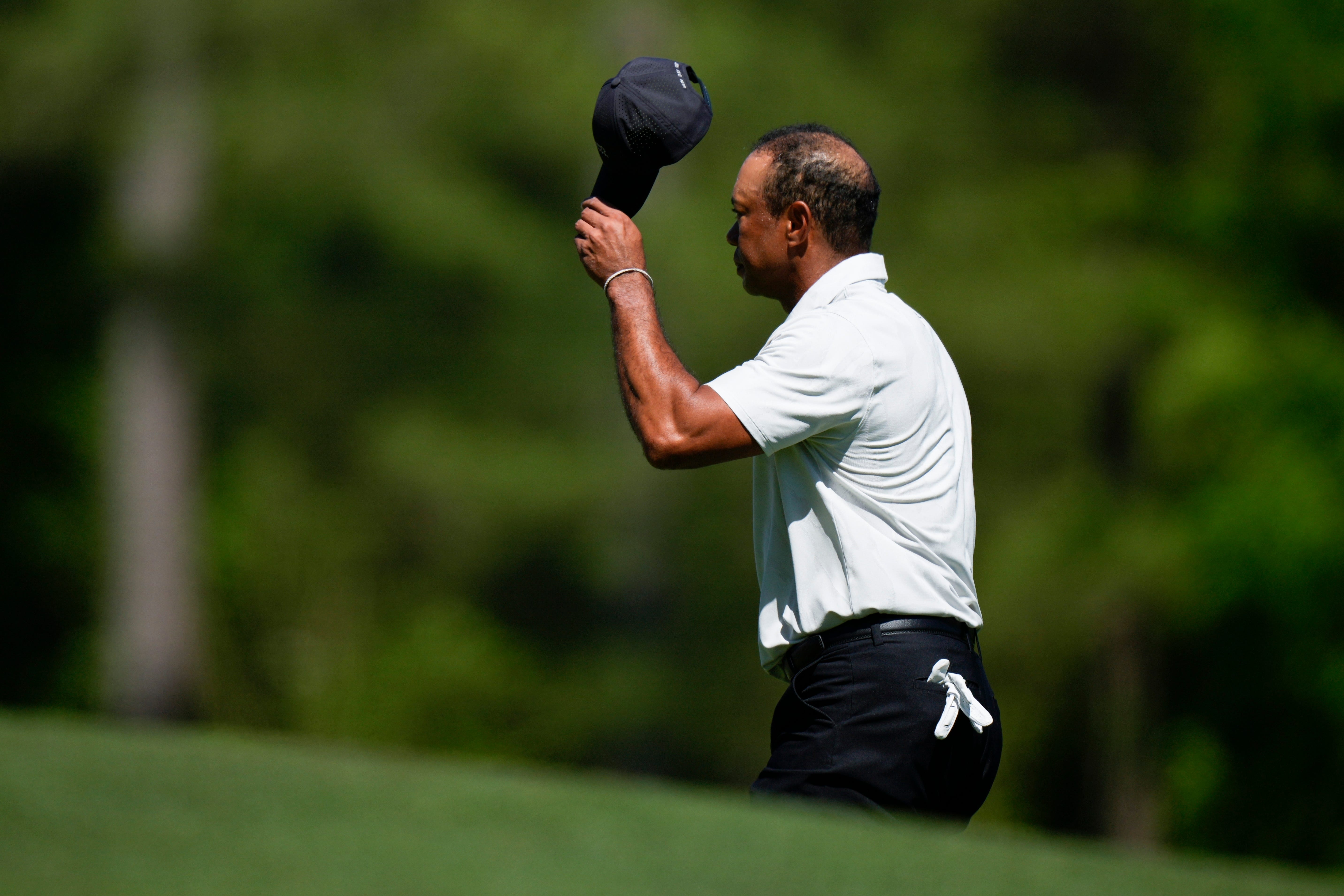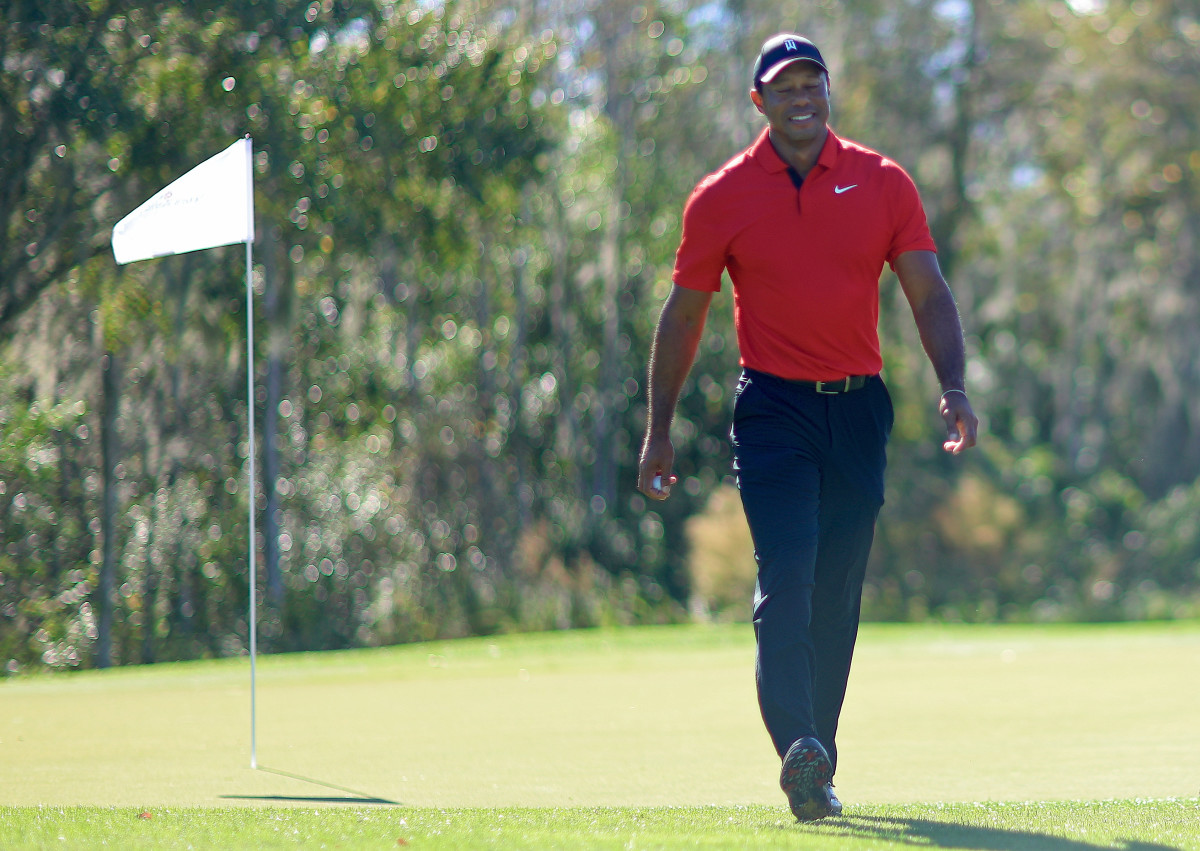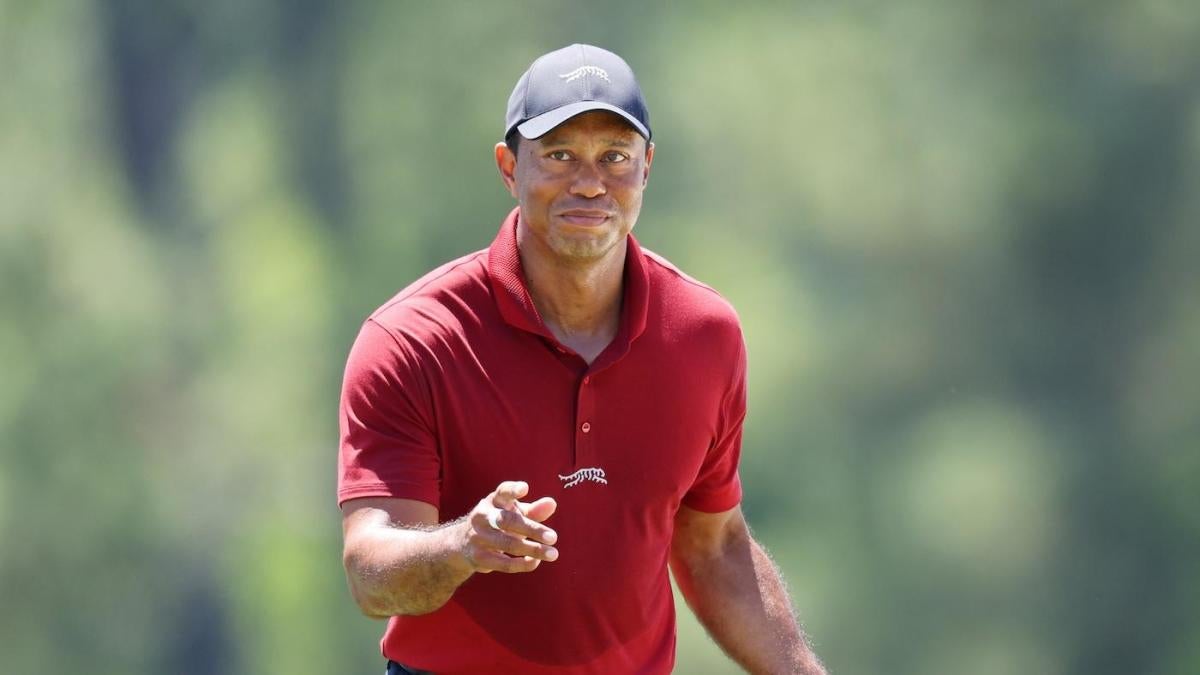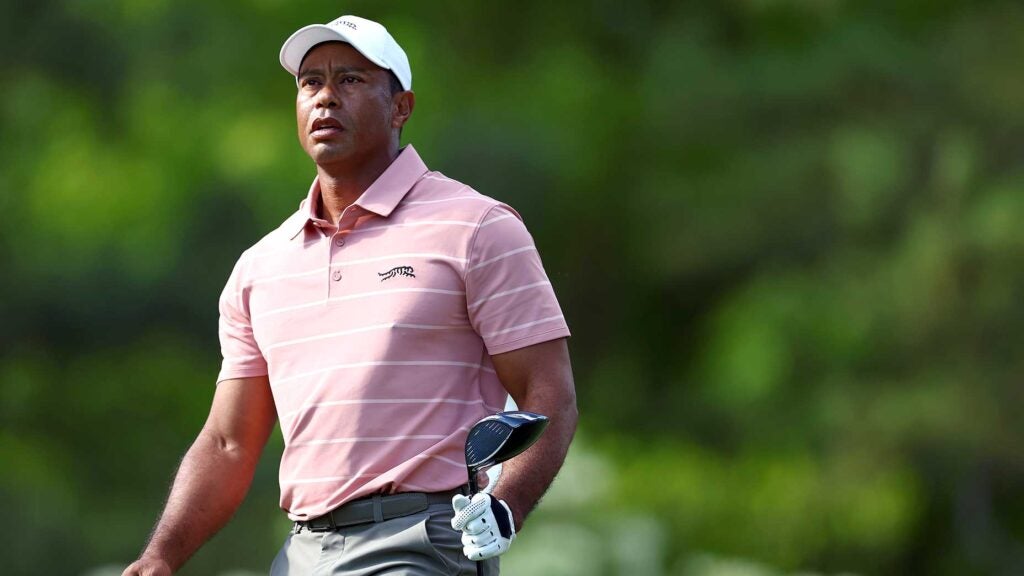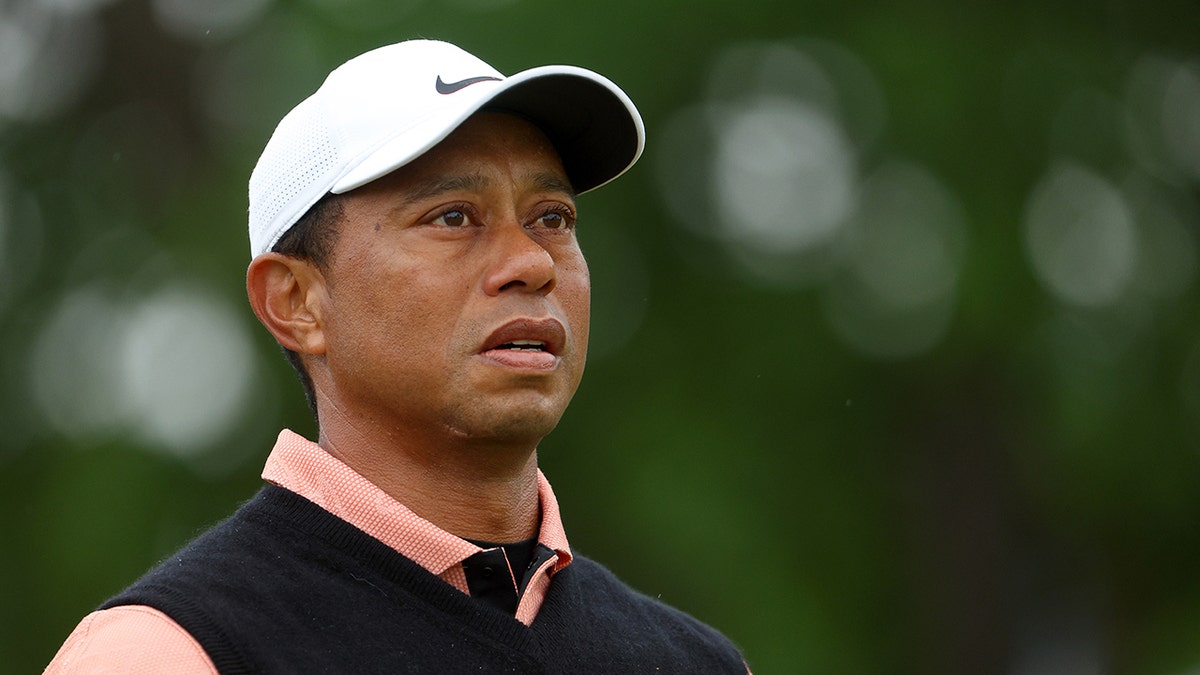Tiger Woods talks with members of the media in a press conference during a practice round for the PGA Championship golf tournament at Valhalla Golf Club. Mandatory Credit: Aaron Doster-USA TODAY Sports
LOUISVILLE, Ky. — Through nearly three decades in the public eye, Tiger Woods has remained a consummate corporate cipher, dodging troublesome inquiries with an enigmatic ease that would have impressed Louisville’s own Muhammad Ali. No one has ever said less more often, a muscle he’ll work strenuously while facing inquiries about his work on the PGA Tour’s new subcommittee tasked with talking to the Saudi Arabian Public Investment Fund.
On Monday, independent director Jimmy Dunne resigned from the Tour’s Policy Board and bemoaned a lack of progress in advancing the Framework Agreement with the PIF that he helped architect, the June 6 announcement of which blindsided players (including Woods) and sparked a bitter governance review during which a faction of player-directors repeatedly demanded accountability from those who worked secretly on the deal unbeknownst to the rest of the board. A day after Dunne’s departure, Woods was asked how optimistic he is about a Saudi deal being reached.
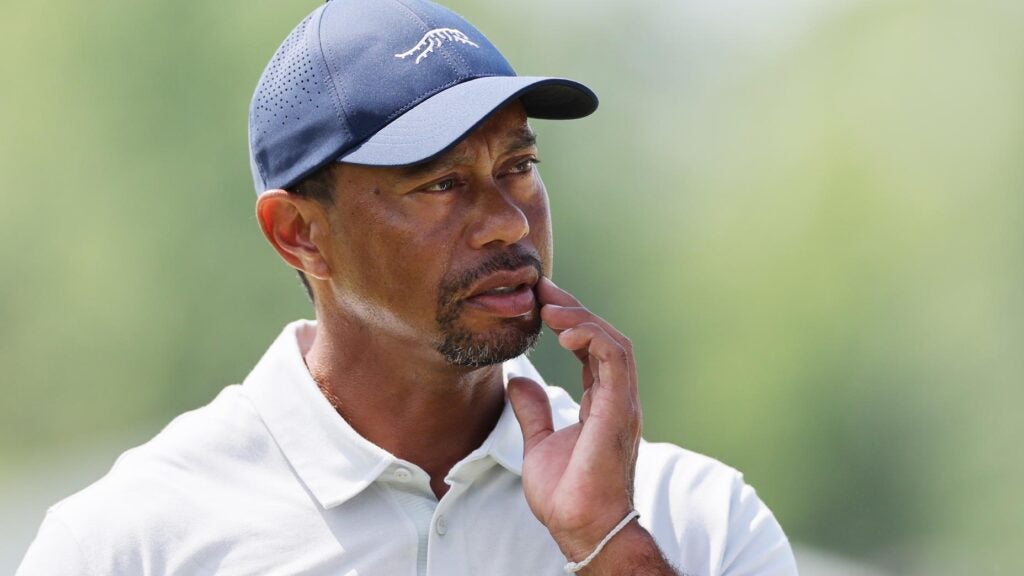
“I think we’re working on negotiations with PIF. It’s ongoing; it’s fluid; it changes day-to-day,” he said, revealing as much as a burka. “Has there been progress? Yes. But it’s an ongoing negotiation, so a lot of work ahead for all of us with this process, and so we’re making steps and it may not be giant steps, but we’re making steps.”
Unlike Rory McIlroy, who has said a deal with PIF is in the best interests of the game, Woods hasn’t detailed what resolution he’d like to see, an astute strategy in that it keeps his counterparts wondering if he wants one at all. He was a vocal critic of LIV and allied with McIlroy to reshape the Tour in an effort to prevent more players leaving, but that was before executives performed an about-face on the Saudis to rival that of Linda Blair in “The Exorcist.” Woods acknowledged that he and McIlroy are not so aligned in their thinking now.
“It’s good to see it differently, but collectively as a whole we want to see whatever’s best for all the players, the fans, and the state of golf,” he said. “How we get there, that’s to be determined, but the fact that we’re in this together and in this fight together to make golf better is what it’s all about.”

Pressed on what he wants to see happen, Woods blocked: “I’m not going to comment. Except that we’re making steps. That’s all I can say.”
Are you personally open to a deal with the Saudis?
“I’m personally involved in the process.”
Dunne called me Monday evening and described his position on the board as having become “superfluous,” describing a ghostly existence in which he wasn’t a decision-maker and wasn’t consulted by those who are — a predictable result of his role in the Framework Agreement. Woods was asked if he agreed with Dunne’s assessment.
“No,” he replied. “Jimmy and the amount of work and dedication that he put into the board and to the PGA Tour, it’s been incredible. It was a bit surprising that he resigned yesterday and just how it all came about, but, no, his role and his help, then what he’s been able to do for the PGA Tour has been great.”
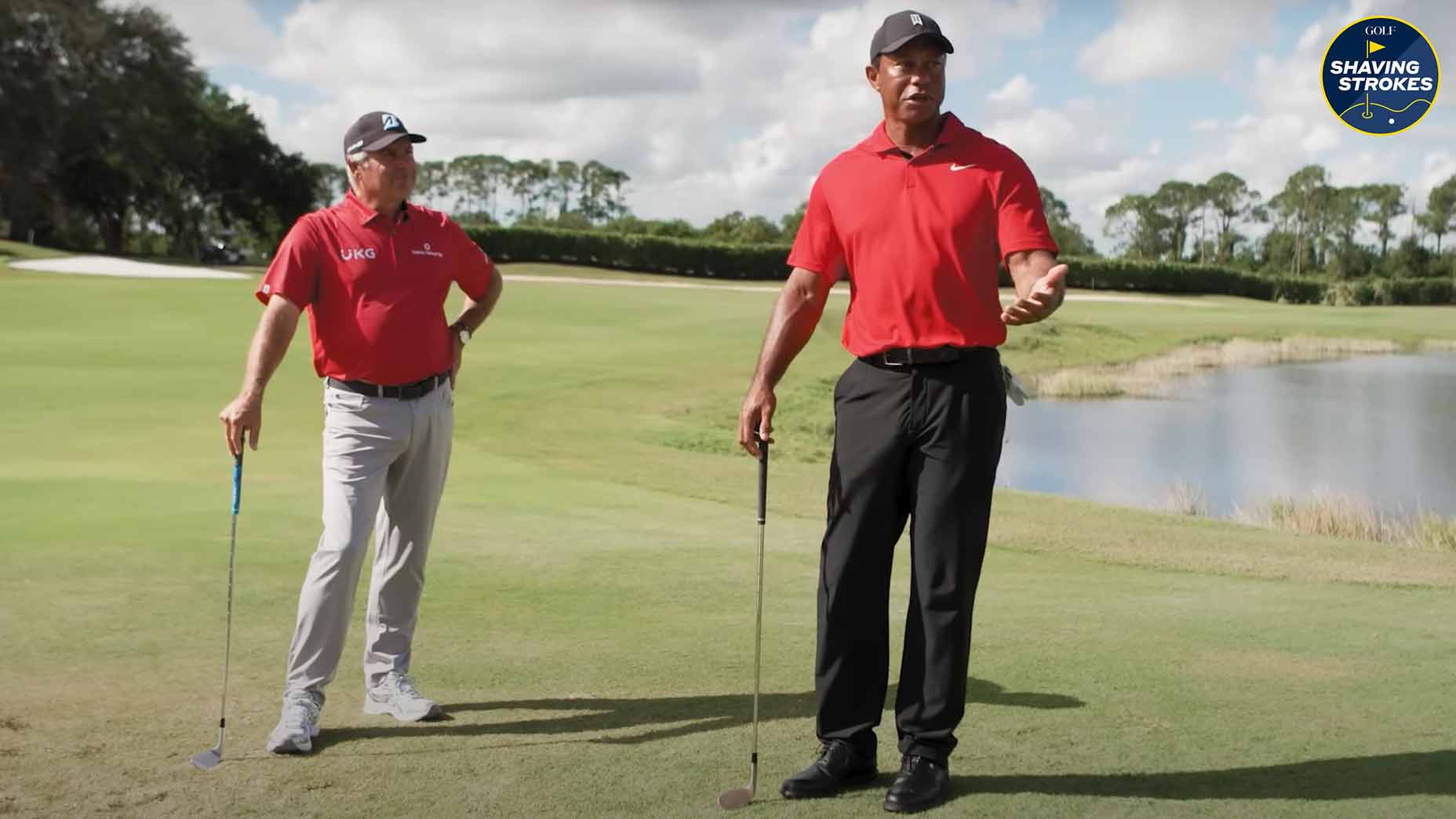
It was a commendable effort at sincerity. Woods’ fellow director, Jordan Spieth, was also at pains to push back on a narrative that players now wield too much power, insisting that good governance has now been established. He used the word “balance” or a derivation thereof 11 times in his Tuesday press conference.

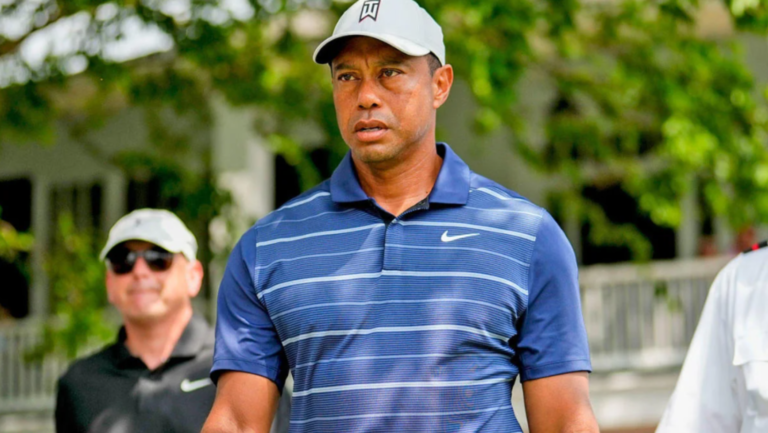
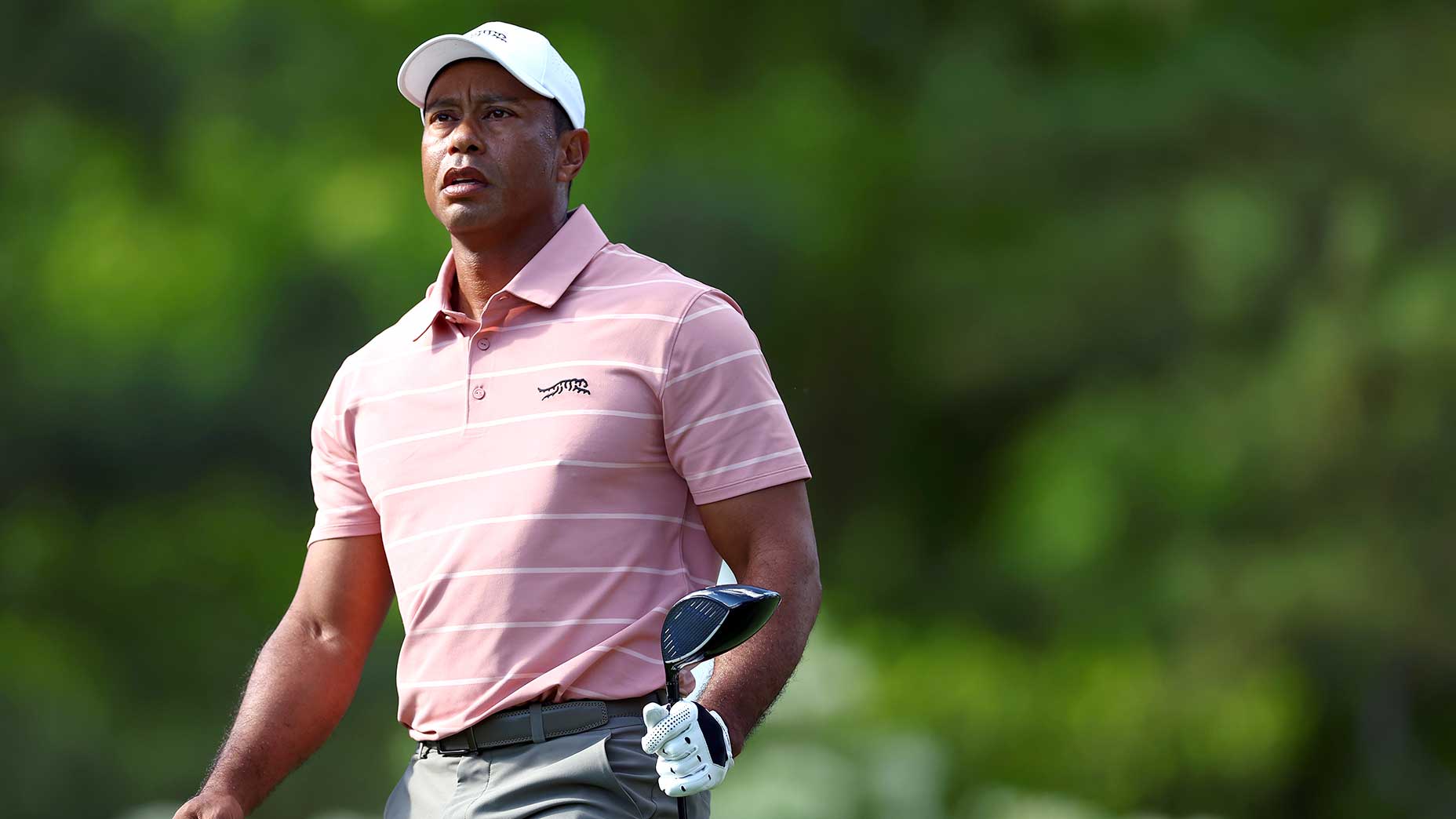
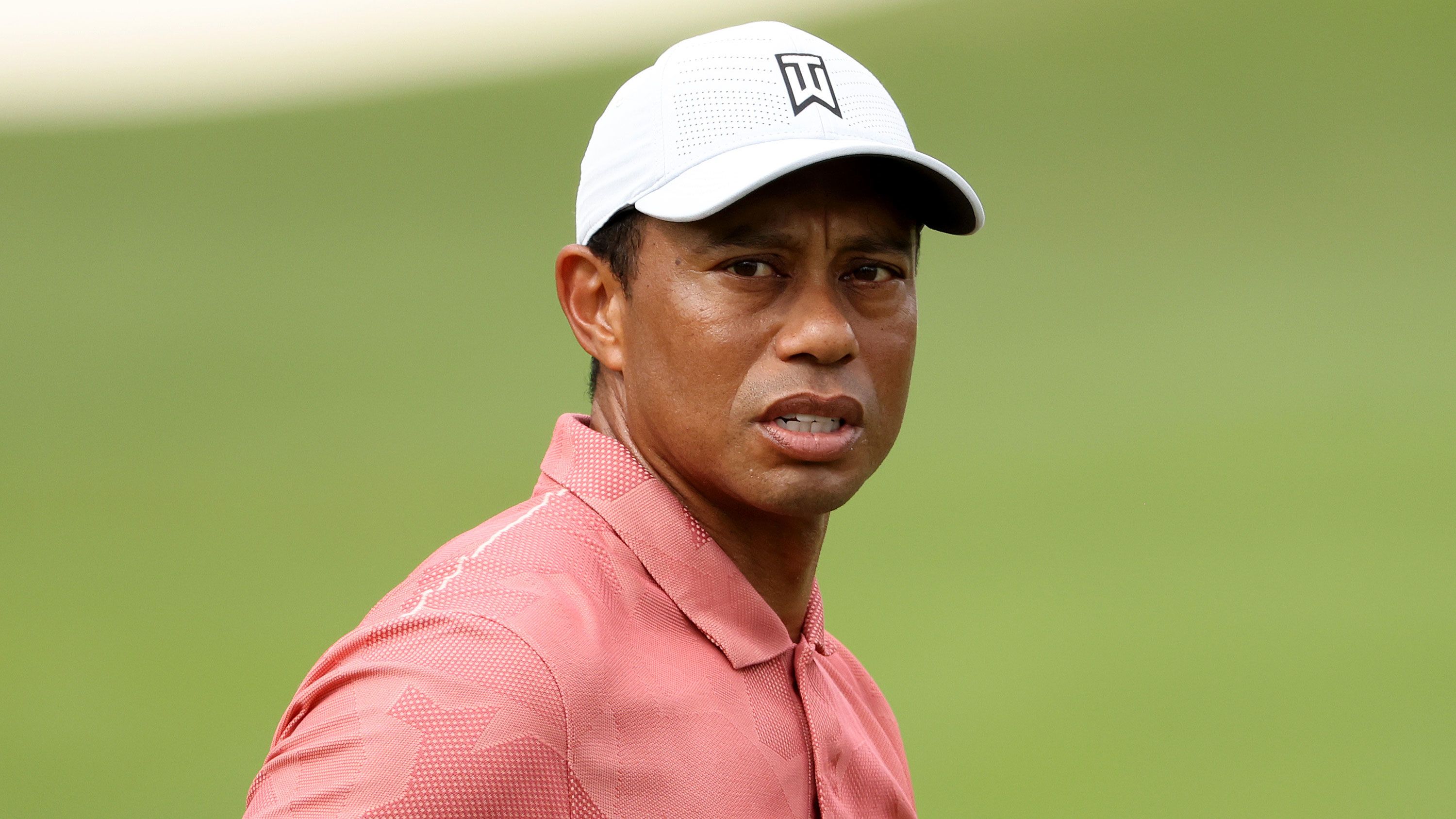
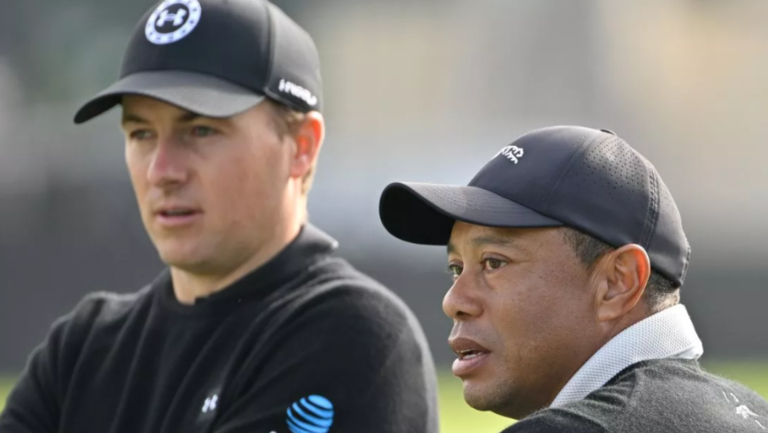

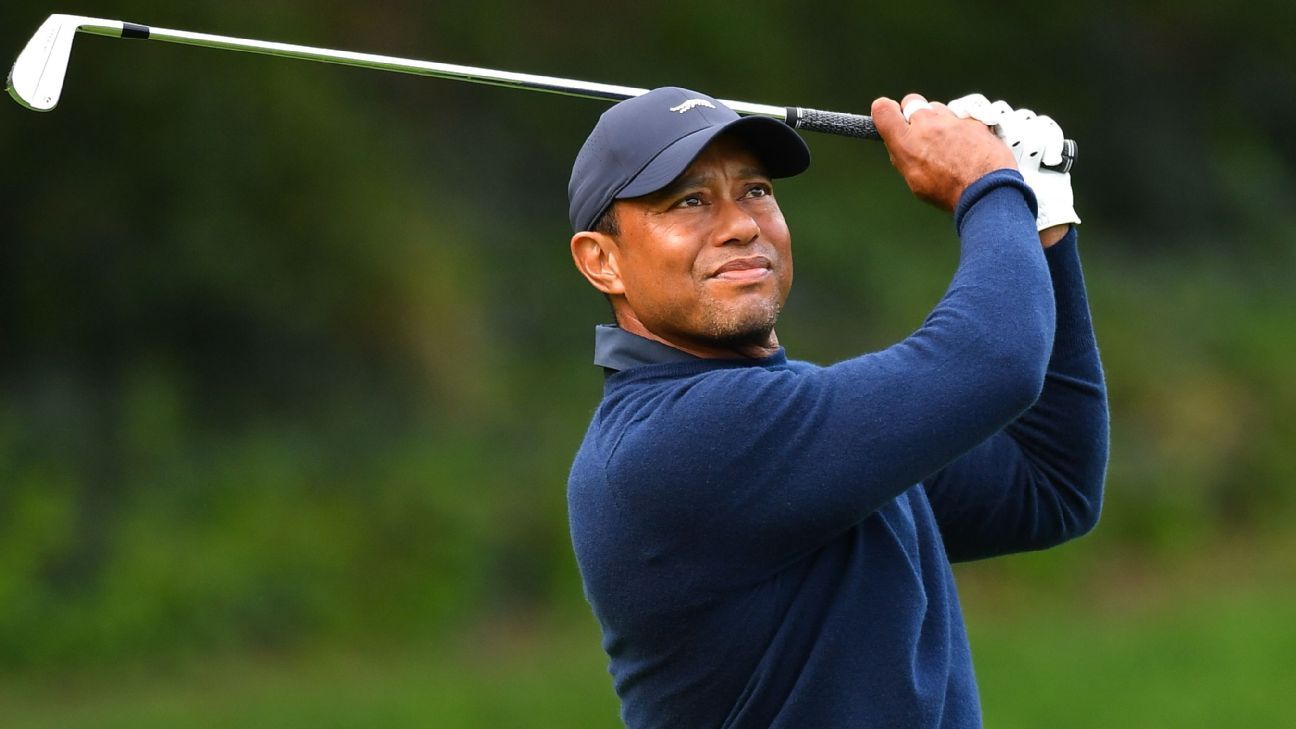



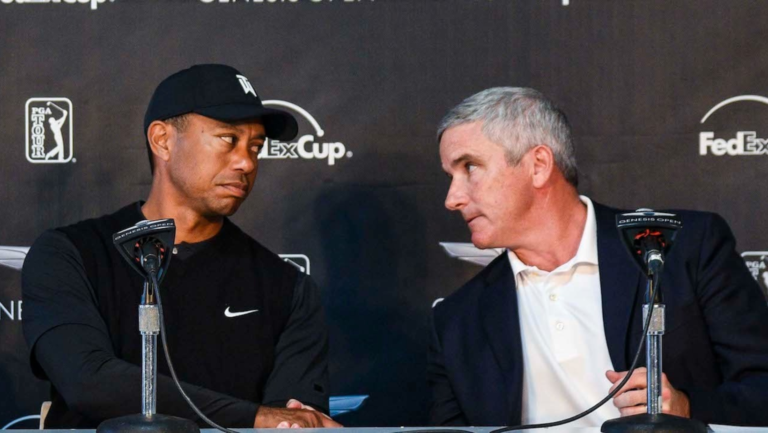
 Following his path, another independent director, Mark Flaherty stepped down from the director position as the Woods-Monahan duo’s goals failed to inspire him too. However, unlike Dunes, Flaherty didn’t disclose the reason behind his resignation. But he was appreciative of the 4 and a half years spent as an independent director and showed gratitude towards Jay Monahan for his leadership, The news of Flaherty leaving the PGA Tour policy board was shared on X by NBC writer, Rex Hoggard. Flaherty said in the letter as NBC reported, “It’s been an honor and a privilege to serve on the policy board for the past 4 ½ years. Golf has always been a significant part of my life. Being able to blend my passion for the sport with the intricate workings and growth of the PGA Tour has been a truly rewarding experience.”
Following his path, another independent director, Mark Flaherty stepped down from the director position as the Woods-Monahan duo’s goals failed to inspire him too. However, unlike Dunes, Flaherty didn’t disclose the reason behind his resignation. But he was appreciative of the 4 and a half years spent as an independent director and showed gratitude towards Jay Monahan for his leadership, The news of Flaherty leaving the PGA Tour policy board was shared on X by NBC writer, Rex Hoggard. Flaherty said in the letter as NBC reported, “It’s been an honor and a privilege to serve on the policy board for the past 4 ½ years. Golf has always been a significant part of my life. Being able to blend my passion for the sport with the intricate workings and growth of the PGA Tour has been a truly rewarding experience.”
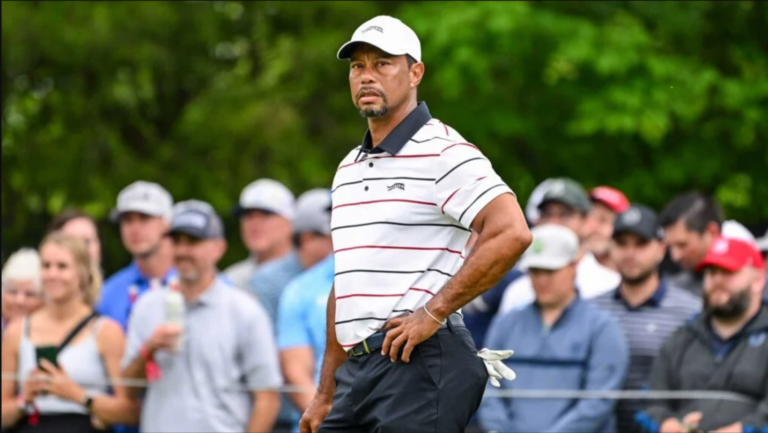
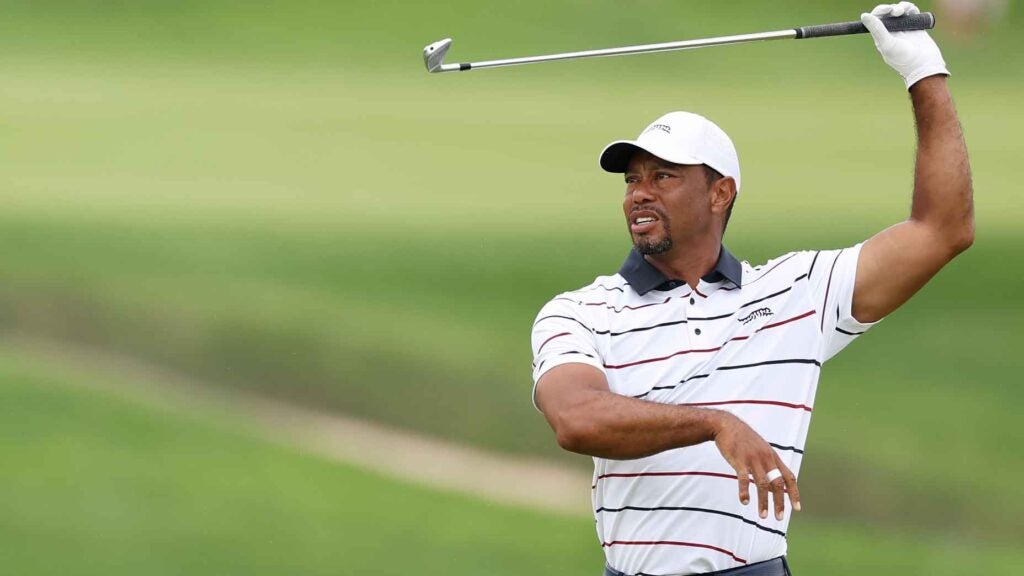


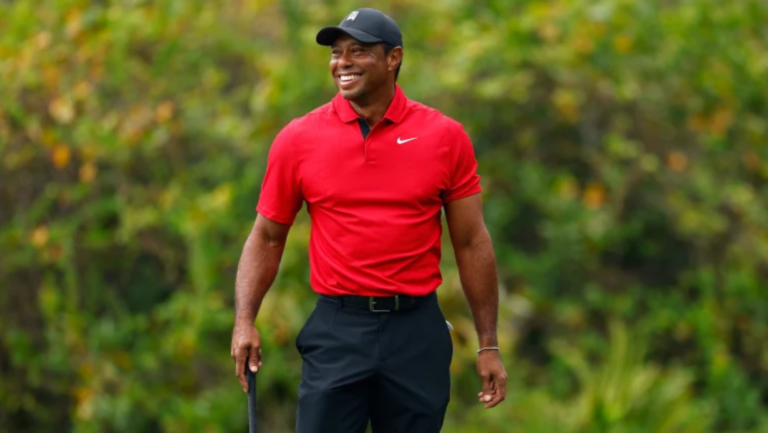
:max_bytes(150000):strip_icc()/INV_Tiger_Woods_GettyImages-1865271308-eed866d921244ce8af2e13e74d1764cf.jpg)
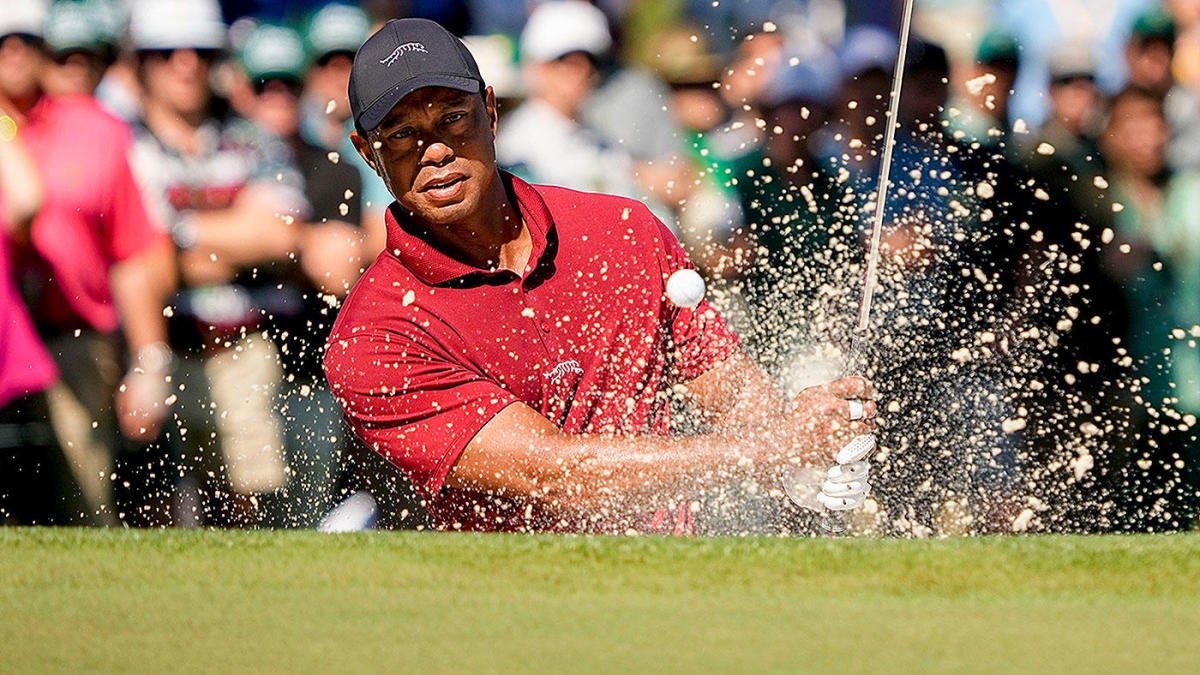
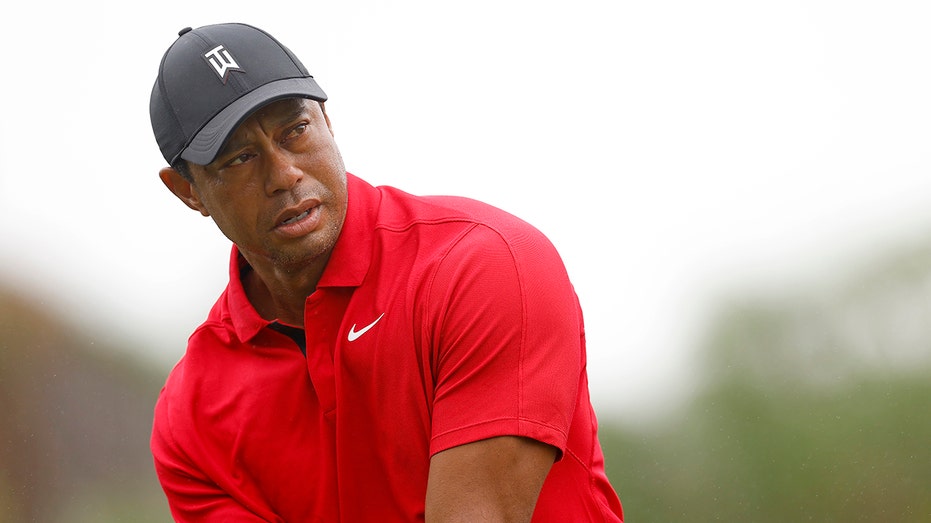
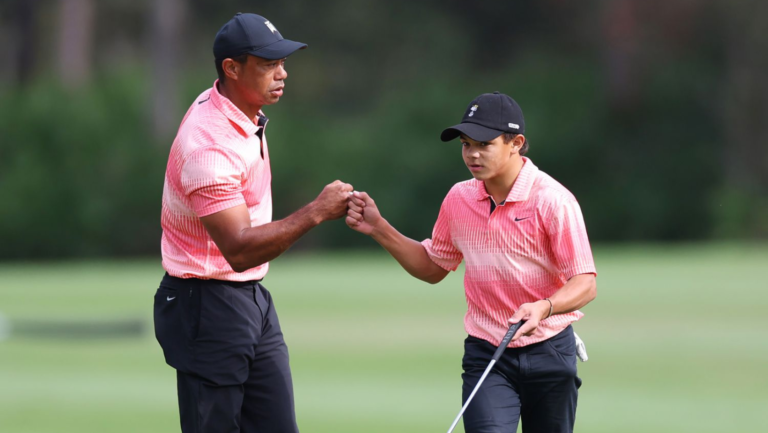
:max_bytes(150000):strip_icc():focal(794x309:796x311)/charlie-woods-tiger-woods-pnc-championships-121922-1-40f88b49d1824e8f809a06bb62438c9a.jpg)





